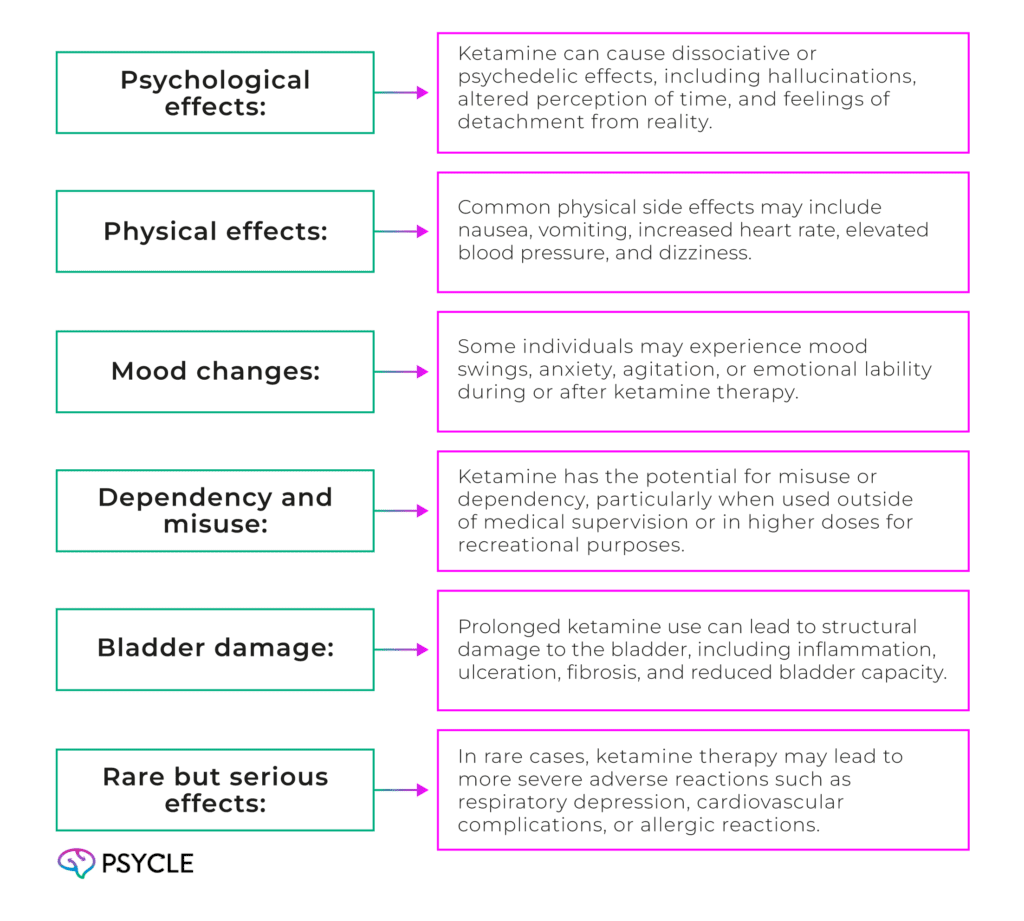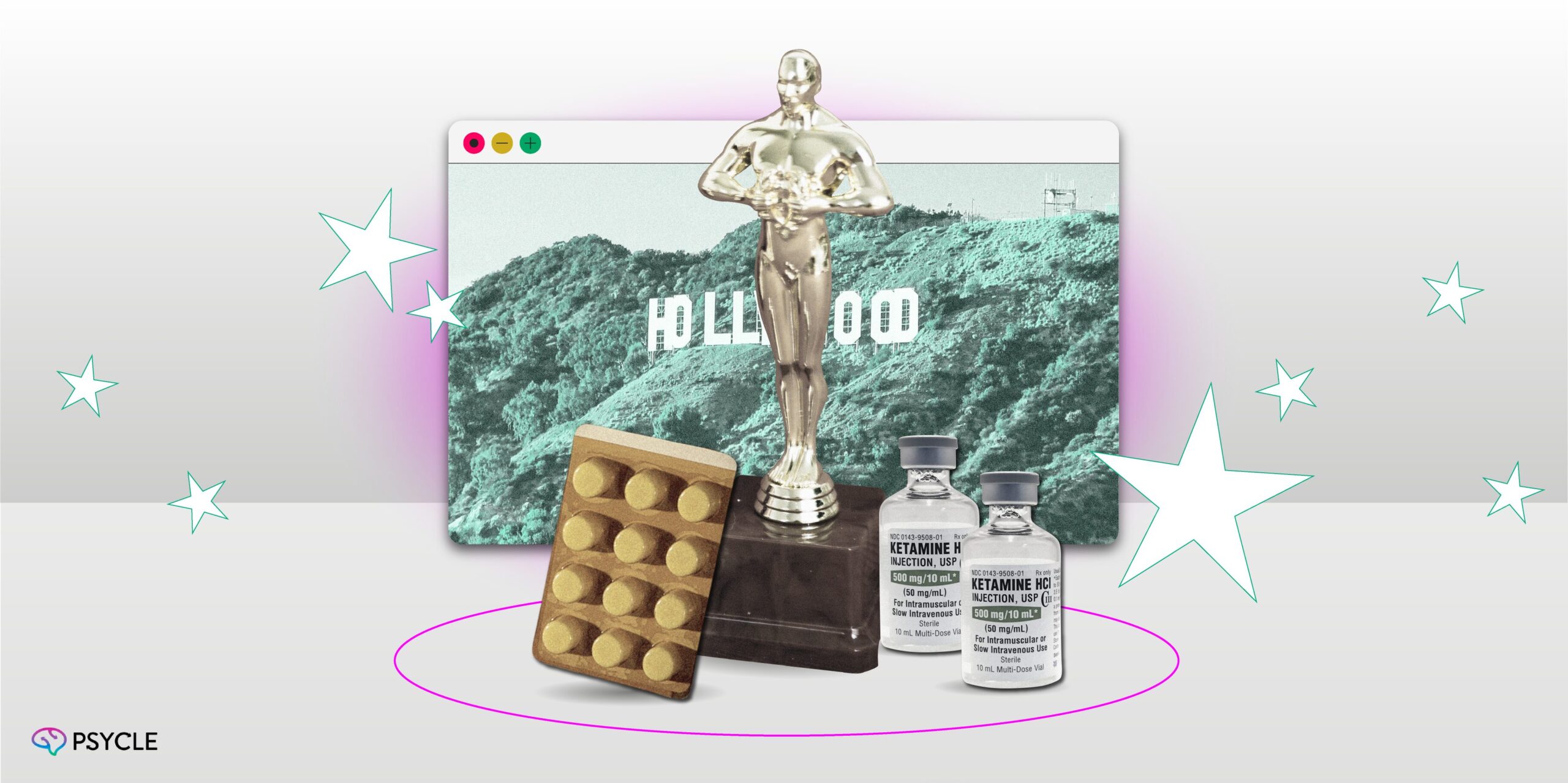Celebrities are increasingly opening up about their experiences with mental health treatments, including ketamine therapy. This article delves into how ketamine therapy works, its applications in mental health treatment, and the experiences of notable figures who have utilized it as part of their wellness journey.
@breakthepsycle_ Celebrities like Chrissy Teigen and Gwyneth Paltrow are turning to ketamine therapy to tackle mental health challenges like depression, PTSD, and anxiety 🧠✨. Backed by science, ketamine works by promoting neuroplasticity, helping the brain rewire itself for healthier thought patterns. Once known as a party drug, it’s now revolutionizing mental health treatment in controlled, clinical settings. Discover how this innovative therapy is providing relief when traditional treatments fall short. Let’s break the stigma and educate on the future of healing. 💡 #KetamineTherapy #MentalHealthMatters #Neuroplasticity #AlternativeHealing #BreakTheStigma ♬ original sound – Psycle Health
How Ketamine Therapy Works
Ketamine for Mental Health
Ketamine, originally an anesthetic and later recognized for its potential in mental health treatment, has unique neurological mechanisms that can enhance mental well-being.
Ketamine acts on the glutamate system, particularly N-methyl-D-aspartate (NMDA) receptors. By blocking these receptors, ketamine triggers a cascade of neurobiological events that lead to increased synaptic plasticity and the formation of new neural connections. This neuroplastic effect is believed to underlie ketamine’s rapid mental health benefits.
Ketamine may also reverse some of the damaging effects of stress on the brain, including over-inflammation, which could help promote overall brain health and psychological well-being.
Ketamine Therapy Process
A typical ketamine therapy process involves a series of treatments followed by maintenance sessions. During the initial treatment phase, patients receive ketamine infusions in a controlled clinical setting under the supervision of medical professionals.
The duration and dosage of each session may vary depending on the individual’s condition and response to the treatment. It is important to note that ketamine therapy should only be administered by qualified healthcare providers who are experienced in its use.
After the initial treatment phase, patients may undergo maintenance sessions at regular intervals to sustain the therapeutic effects of ketamine. These sessions are designed to help individuals maintain their progress.
Ketamine Therapy for Depression
Ketamine therapy has shown significant benefits for individuals with treatment-resistant depression, meaning those who have not responded well to other conventional treatments. Research indicates that ketamine therapy can have a rapid and robust antidepressant effect, often within hours or days of treatment.
Unlike traditional antidepressant medications, which may take weeks or months to show results, ketamine therapy offers a relatively quick and effective solution for managing depression symptoms. This can be especially beneficial for individuals in acute distress or those at risk of self-harm.
Other Uses of Ketamine Therapy
Outside of depression, ketamine therapy has demonstrated potential in treating other mental health conditions. This has included:
Some people, including Elon Musk, have reported microdosing ketamine to improve overall mental well-being. However, there is very little evidence, outside of anecdotal reports, to support the benefits of microdosing ketamine.
Ongoing research aims to further explore the full range of ketamine’s therapeutic effects.
Celebrities Who Have Used Ketamine
Chrissy Teigen
Chrissy Teigen, a well-known model and television personality, has openly shared her experience with ketamine therapy on her Instagram. In the post, she mentioned undergoing ketamine therapy on her 38th birthday, during which she had a profound vision of her late baby, Jack.
Teigen and her husband, John Legend, tragically experienced the loss of their third child due to complications during pregnancy. This devastating event had a significant impact on Teigen’s emotional well-being, leading her to explore alternative methods of managing her grief and mental health.
“I had a really nice birthday,” she wrote in the post caption. “Went to see my friends @flamingo_estate, had a beautiful lunch with friends, then did ketamine therapy and saw space and time and baby jack and some weird penguins and cried and cried and cried.”
Elon Musk
Elon Musk, the billionaire entrepreneur and CEO of leading companies Tesla, SpaceX, and Neuralink, has spoken only about his ketamine use.
In an interview with US journalist Don Lemon, Musk said he uses a small amount of ketamine once every other week to manage his “negative chemical state” and that he prescriptions from a “real doctor.” He asserted in a tweet that “ketamine taken occasionally is a better option” than traditional medication for depression.
Depression is overdiagnosed in the US, but for some people it really is a brain chemistry issue.
— Elon Musk (@elonmusk) June 27, 2023
But zombifying people with SSRIs for sure happens way too much. From what I’ve seen with friends, ketamine taken occasionally is a better option.
Musk has also admitted to using ketamine in full doses for recreational purposes at parties.
Sharon Osbourne
Sharon Osbourne is a prominent television personality, businesswoman, and media personality, best known for her appearances on reality television shows such as “The Osbournes.”
Osbourne revealed using ketamine therapy to overcome trauma associated with leaving the TV show The Talk, in which she was accused of racism and homophobia. She said that she started getting death threats as a result of the fallout, causing her to develop anxiety. Her friend and former co-host Sara Gilbert suggested her to ketamine therapy treatments.
“I went through three months of therapy,” she said in one interview. “I had ketamine treatment and I got it all out. All the tears and everything that I felt, you know. All of that, it’s gone.”
Gwyneth Paltrow and Psychedelics
While the American actress and businesswoman says she has no personal use of psychedelics, she is an advocate for alternative wellness paradigms, including psychedelic and ketamine therapy. She has advocated for their usefulness on behalf of her wellness and lifestyle brand, Goop.
Safety of Ketamine Therapy
While ketamine therapy, when administered under medical supervision, is generally considered safe, it’s not without potential risks and side effects. Here’s an overview of the safety aspects of ketamine therapy, along with a list of potential adverse effects:

Ketamine therapy should be administered by trained healthcare professionals in a controlled clinical setting to ensure proper preparation, dosing, monitoring, and management of any adverse reactions.
Patients should also be carefully screened to ensure they are suitable candidates for ketamine therapy, considering factors such as medical history, current medications, and mental health condition severity.
Conclusion
Ketamine therapy is gaining increasing recognition as an effective, long-lasting mental health treatment. Celebrities sharing their experiences with ketamine therapy has helped awareness about ketamine in recent years, reducing the stigma associated with this alternative mental health treatment.
However, it’s essential to approach these endorsements critically. For those interested in using ketamine therapy, it’s essential to consult healthcare professionals to see whether the treatment is right for you and understand the risks involved.
FAQs
Can Ketamine Therapy Be Used to Treat Mental Health Conditions?
Yes, ketamine therapy has shown promise in treating various mental health conditions, particularly treatment-resistant depression. Research suggests that ketamine therapy can provide rapid and robust antidepressant effects, often within hours or days of treatment. Additionally, ketamine therapy may be beneficial for other mental health conditions such as PTSD, anxiety disorders, eating disorders, and substance abuse disorders.
How Does Ketamine Therapy Work for Depression?
Ketamine therapy works by acting on the glutamate system in the brain, particularly N-methyl-D-aspartate (NMDA) receptors. By blocking these receptors, ketamine triggers neurobiological events that enhance synaptic plasticity and promote the formation of new neural connections. This mechanism is believed to underlie ketamine’s rapid antidepressant effects.
What Other Mental Health Conditions Can Ketamine Therapy Potentially Treat?
In addition to depression, ketamine therapy has shown potential in treating other mental health conditions such as post-traumatic stress disorder (PTSD) and anxiety disorders, including generalized anxiety disorder (GAD) and social anxiety disorder, eating disorders, and substance abuse disorders. Ongoing research is exploring the efficacy of ketamine therapy for these conditions and its potential as a versatile treatment option.
Is Ketamine Therapy Safe?
When administered under medical supervision, ketamine therapy is generally considered safe and well-tolerated for most individuals. However, like any medical treatment, it carries potential risks and side effects, including psychological, physical, and mood-related effects. Proper screening, monitoring, and management are essential to ensure safe and effective treatment outcomes.

